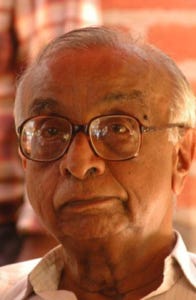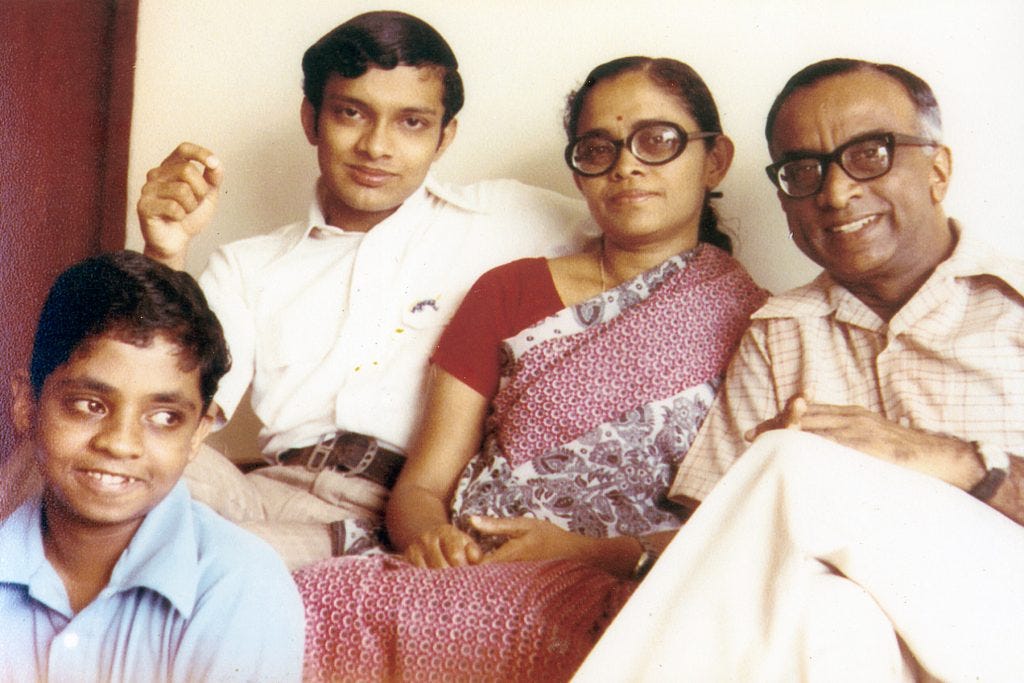K.N. Raj Helped Shape India’s Post Independence Economic Policies
K.N. Raj stressed that economic development be measured by progress in human welfare says Sunil Mani
October 31, 2024
By Sunil Mani*
K.N. Raj’s contributions were deeply rooted in his belief that economic policies should serve the broader goals of human welfare and equity rather than just aggregate economic growth.
He had a key role in shaping India’s economic policies in the decades following the country’s independence from British rule in 1947. He prepared India's first balance of payments estimates and contributed to the drafting of the country's First Five-Year Plan (1951-1956).
As part of such work, he analyzed the political economy of intermediate regimes, exploring the complex dynamics of countries which housed a mix of capitalist and pre-capitalist structures. India’s adoption of a mixed economy model under Jawaharlal Nehru, India’s first Prime Minister, (1947-1964), reflected the essence of such a regime where government-owned enterprises coexisted with private businesses.
The government controlled and funded growth of capital-intensive strategic sectors like steel, electricity, and railways, while the private sector operated in businesses such as textiles, small-scale manufacturing, and agriculture. Raj’s framework sought to understand how India can avoid the extremes of both capitalism and socialism, pursuing a path that aimed at inclusive growth, with state intervention, without eliminating private enterprise.
Raj’s work influenced the formulation of economic policies to tackle similar conditions in other post-colonial nations as well as contributed significantly to the academic understanding of such policies.
In addition, Raj was a builder of notable institutions of advanced social science research. While at the Delhi School of Economics (1953 to 1973), he helped to transform it into a premier center of economic studies. This was followed by his return to Kerala in 1971 to establish the Centre For Development Studies (CDS) in Thiruvananthapuram.
Under his leadership, CDS was recognised globally for its research on applied economics and social sciences, particularly its work on the Kerala model of development. This model emphasised high social indicators such as literacy and life expectancy, despite low per capita income. It was based on Raj’s belief that development should be measured not just by economic output but by improvements in human welfare.
(Photo: K.N.Raj, right, with his family. Courtesy CDS.)
It was Raj’s personal qualities—his humility, accessibility, and mentoring generations of students—which best illustrate the man behind his achievements as an economist. His teaching style was marked by an openness to dialogue and inquiry, regardless of the student's background or expertise. He believed in nurturing talent from diverse backgrounds and fostering an environment of intellectual curiosity.
Raj had an uncanny ability to identify and nurture talent, often going out of his way to provide opportunities for career growth. He supported students in their research and professional journeys, facilitating access to data and encouraging field projects that enriched their learning. His leadership was characterised by compassion and resilience. Even in challenging times, Raj remained calm and composed, earning the respect of both supporters and detractors. His gentle demeanour concealed a steely resolve, enabling him to navigate complex institutional dynamics effectively.
Beginning in the early 1950s, Raj contributed extensively to the Economic Weekly, which served as a key platform for debates on India's development policies. His writings, grounded in the perspective of J.M. Keynes, analysed economic planning, poverty, land reforms, and industrialization. After the Economic Weekly transitioned into the Economic & Political Weekly (EPW) in 1966, Raj contributed to its expanded focus on both political and economic issues. For instance, he advocated for state intervention to address inequality and promote inclusive growth. Raj also encouraged students to contribute to the EPW.
Raj was born Kakkadan Nandanath Rajan on May, 13, 1924 in Thrissur, Kerala. His education at the Madras Christian College, Chennai, India, and his advanced studies at the London School of Economics (LSE), with renowned mentors including economist Joan Robinson, shaped his economic thinking.
Raj’s ideas continue to shape economic and development policies in India, as was evident during his centennial celebrations at CDS this month. The conference and the accompanying souvenir ensure that Raj’s intellectual legacy remains an inspiration for future generations of economists and development practitioners.
As India continues to face poverty, unemployment, lack of adequate healthcare and other developmental issues, Raj's vision of a society where economic policies uplift the marginalised ought to serve as a guiding principle for scholars and policymakers alike.
*Sunil Mani is a visiting professor at the Centre For Development Studies, (CDS), and Ahmedabad University, both in India. He was a former Director and Reserve Bank of India Professor at CDS.




